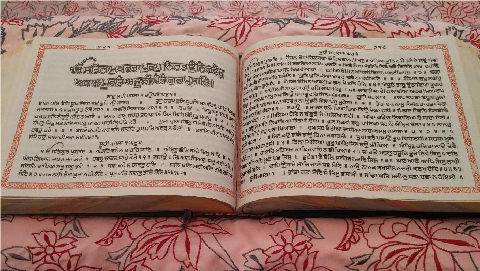ANANTA, BHAI, son of Bhai Kuko, a Vadhavan Khatri, was a devoted Sikh of the time of Guru Hargobind (1595-1644). According to Bhai Santokh Singh, Sri Gur Pratap Suraj Granth, he once earned the Guru`s displeasure for wantonly hitting a crow which became lame as a result of the injury. He was, however, repentant and was pardoned through Bhai Bidhi Chand`s intercession. Bhai Ananta laid down his life fighting for the Guru in the battle of Amritsar (1629).
DEATH, the primordial mystery and one of the cardinal conditions of existence. Scientifically, death is defined as "the permanent cessation of the vital function in the bodies of animals and plants" or, simply, as the end of life caused by senescence or by stoppage of the means of sustenance to body cells. In Sikhism the universal fact of mortality is juxtaposed to immortality (amarapad) as the ultimate objective (paramartha) of life. As a biological reality death is the inevitable destiny of everyone. Even the divines and prophets have no immunity from it. Mortality reigns over the realms of the gods as well.









